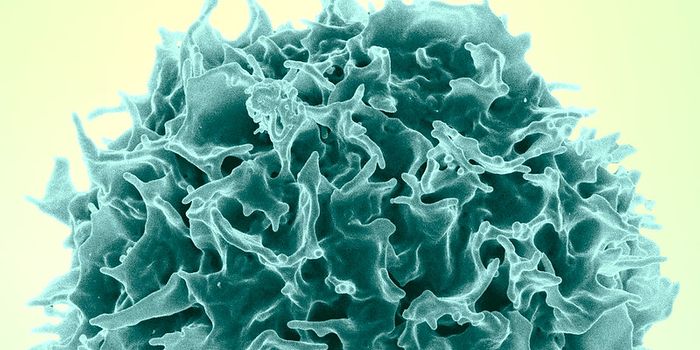Enzymes are proteins produced by a living organism that act as catalysts to bring about specific biochemical reactions. The chemical reactions that help to maintain metabolism and life are reliant on enzymes. Some enzymes can catalyze a reaction (speed it up) to cause a chemical reaction to occur much faster than it would have been without it. A new genetic regulatory mechanism might determine the immune system's ability to fight viral infections, and play a role in autoimmune diseases.
In a study published online in Genes and Development, a team of researchers led by NYU School of Medicine finds that chemical changes to critical locations on the structure of messenger RNA (mRNA) can control the production of the interferon-beta protein.
The study shows how a pair of enzymes controls the production of interferon beta by determining whether or not a methyl group (one carbon and three hydrogens) is attached to adenosine, one of the chemical "letters" in the mRNA code that guides the protein building process.
Messenger RNA is the molecules of RNA in which the genetic information transcribed from DNA as a sequence of bases is transferred to a ribosome eventually resulting in the production of a protein. In this case, the protein is the interferon beta protein. Interferon beta is a cytokine (immune molecule) that can cause inflammation and can also activate immune cells to destroy virus particles.
The chemical changes observed on the mRNA are specifically methylation of the adenosine at position N-6 by the enzyme known as m6A methyltransferase. The study notes that the methylation is also counterbalanced via another enzyme called ALKBH5 that effectively removes the added CH3. The team indicates in their work how these enzymes affect the amount of interferon-beta mRNA produced when responding to human cytomegalovirus infection (HMCV).
Human cytomegalovirus is a species of the virus genus Cytomegalovirus, which in turn is a member of the viral family known as Herpesviridae or herpesvirus. The HMCV genome consists of a double-stranded DNA with around 230,000 base pairs.
The article shares that interfering with the enzyme that adds the methyl group will result in increased interferon beta protein production. Additionally, shutting down the enzyme that removes methyl groups reduce interferon beta protein production.
"Our study found that the cellular machinery that controls adenosine methylation on position N-6 plays a fundamental role shaping the immune response of human cells," says senior study author Ian Mohr, Ph.D., a professor in the Department of Microbiology at NYU Langone Health.
"Many diseases, such as lupus, are associated with excess interferon production related to the sensing of misplaced DNA, and our new findings suggest that interfering with enzymes that chemically modify mRNA may represent new ways to treat these conditions," says Mohr.
The team identifies that their work may one day allow for a rewind of sorts on the mechanisms controlling autoimmunity.
Watch this video to learn more about the basics of autoimmunity.
Sources: Genes and Development, NCBI, Science Daily, YouTube









